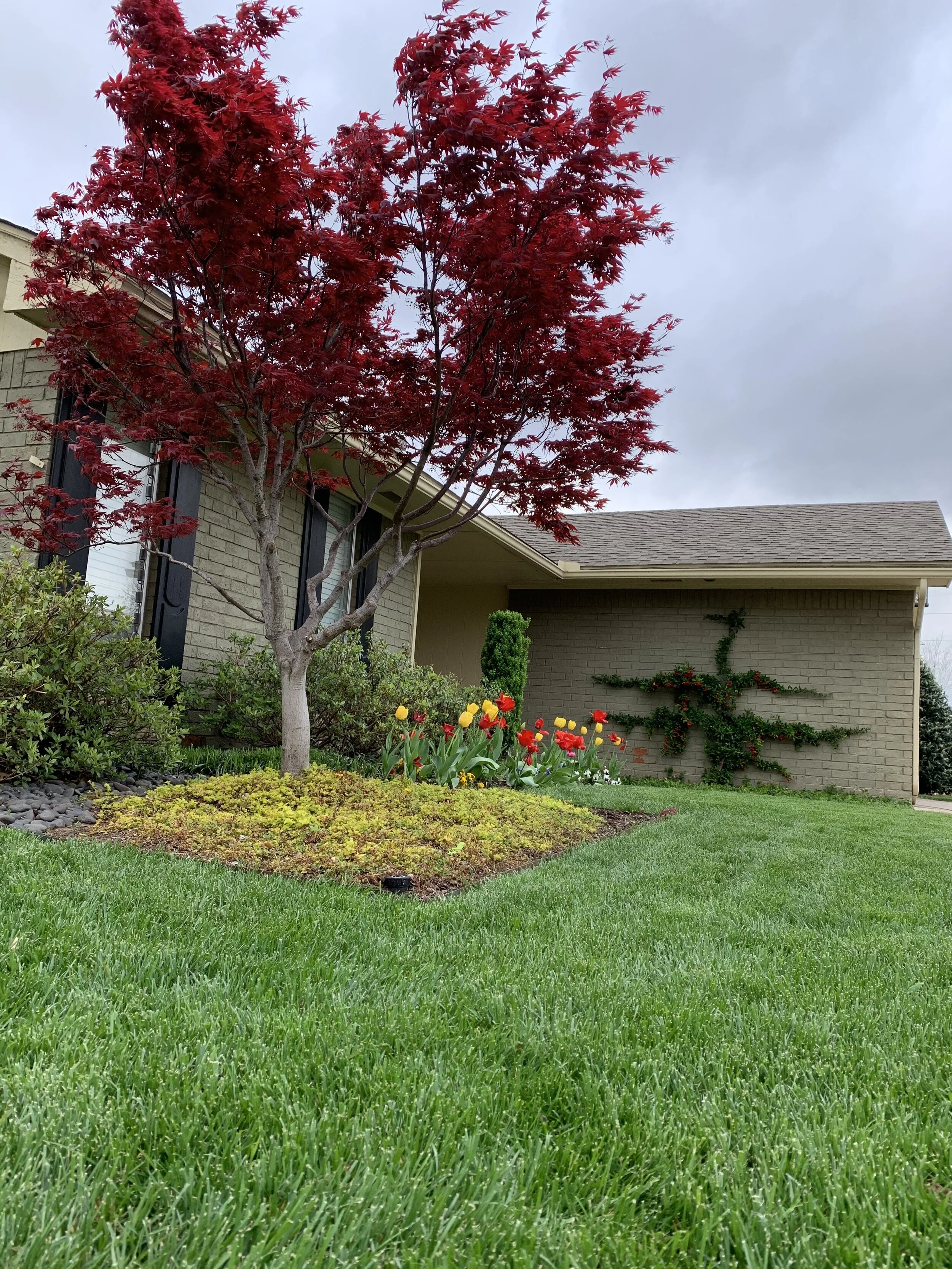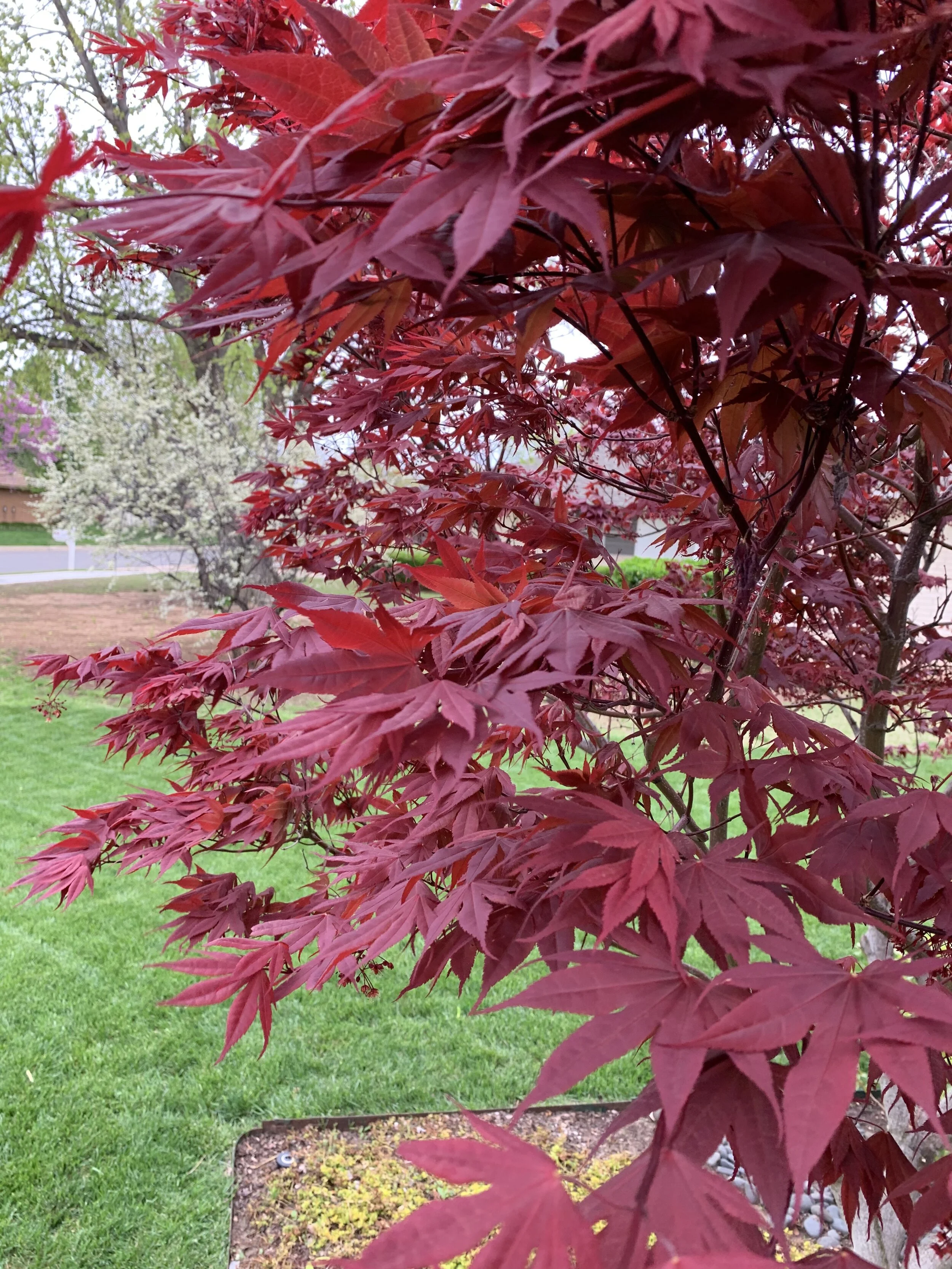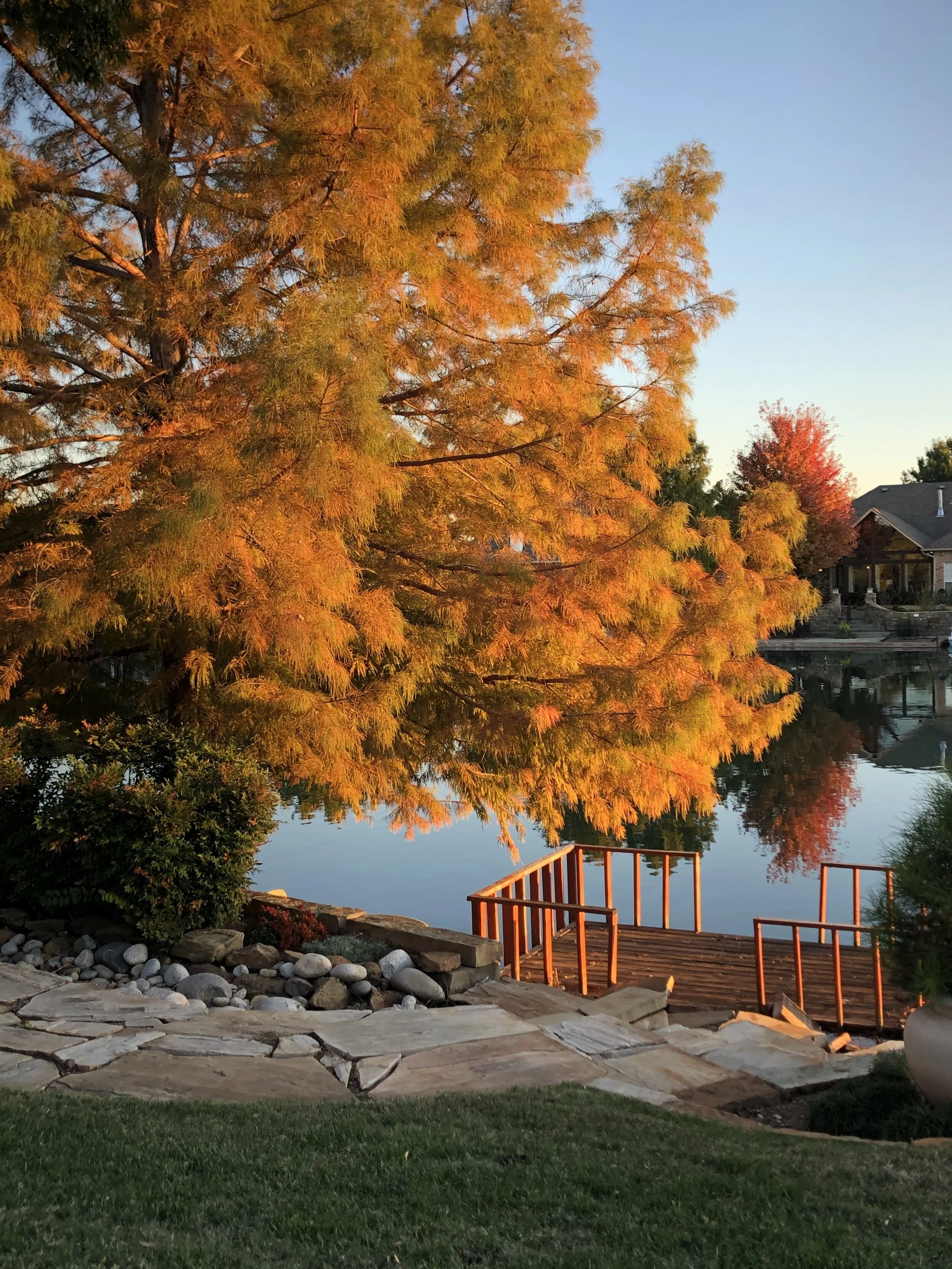Trees -- the pillars of our landscapes!
“Trees are truly the pillars of our landscapes… think of trees as an investment for future generations…”
The words Steve Dobbs as he introduces you to trees in his book Oklahoma Gardener’s Guide.
I am thankful previous generations took “investment in future generations to heart” and began the forestation of the Oklahoma prairies. And, that is why last week was so difficult. As I moved around the metro area this week, the widespread devastation of trees left me feeling as if planting trees in our climate was a losing cause.
Then the sun came out. For me, when the sun is shining, suddenly everything looks like it is going to be alright.
Leaves that were protected from the cold nights by a layer of ice, a layer that also left us with gaping holes in trees, began turning brilliant colors. One friend sent me a picture of a maple and commented “There is absolutely nothing in the world like an Autumn Blaze Maple. It looks like it is plugged in!”
Trees are worth it.
Trees make a difference in the appearance of our communities.
There is not a better way to improve the appearance of an area than to plant a tree.
Trees make a difference in the way we feel.
Trees increase the value of a property.
Trees, trees... trees just make the world a better place!
This may be the best fall yet for Autumn Blaze Maples
Every tree has its strength and weaknesses. Sweetgum gives us unique fall colors with a mix of yellow, purples and reds. But, it is also know for its large and obnoxious seed balls that litter the lawn.
Chinese Pistache is a medium sized tree with an oval top that is the perfect size for a city sized lot.
So, if trees are worth it, what characteristics make for the best tree?
There is not a perfect tree for every location. But there is a perfect tree for each location.
Here are a few things to consider when selecting a tree:
First – the intended purpose is important. Are you looking for shade, fall color, spring or summer flowers, screening, attract wildlife, windbreak, etc.?
Second – the size of the area. Large trees that grow over 35’ or taller are better suited for larger lawns and taller structures. Large trees planted on traditional sized residential lot often result in the need for heavier pruning.
Even with a few damaged branches, the Silhouette Sweetgum couldn’t help but burst with color this week.
Third – the shape of the tree. Larger trees typically have a strong central leader and spreading branches that create a lot of shade. Trees with oval tops are often small to medium-sized. There are also columnar shaped trees perfect for smaller areas.
Finally – consider the advantages and disadvantages of a particular tree. Are they susceptible to disease or insects? Do they prefer wet or dry soils? It is important you select a tree that is suitable for your type of soil – sand, loam, or clay. Do they have seeds, fruit, or nuts that are obnoxious? Do they have soft or brittle wood that is easily damaged by wind or ice? Fast-growing trees typically have weak wood, and some trees have narrow branching angles that are susceptible to storm damage.
Japanese Maples with their bright spring colors are a great tree for small areas.
Where do you go to find the best trees for your landscape?
Let me give you three sources of information:
Oklahoma State University Fact Sheet HLA-6456 Selecting Deciduous Trees for Oklahoma
http://pods.dasnr.okstate.edu/docushare/dsweb/Get/Document-11113/HLA_6456web.pdf
The article breaks trees down into varieties that tolerate or prefer dry locations, tolerate or prefer wet locations, tolerate or prefer shade, tolerate or prefer alkaline soils, winter interest, showy bark of unusual form, interesting or showy fruit, showy flowers, fall color, planting under power lines, attract wildlife, native species, and undesirable trees. There is also a table of trees listing region of the state, growth rate, height, and comments.
Some varieties of Japanese Maples have yellow fall color.
Autumn Blaze Maple
Oklahoma Proven!
http://www.oklahomaproven.org/welcome
A program by the Department of Horticulture and Landscape Architecture at Oklahoma State University. The program evaluates and recommends plants well-adapted for use across Oklahoma. Since 1999, the program has recommended trees, shrubs, perennials, and annuals.
Oklahoma Gardener’s Guide by Steve Dobbs
https://www.amazon.com/Oklahoma-Gardeners-Guide-Guides/dp/1591861241
A must-have book for anyone interested in Oklahoma landscapes. Steve’s book has been a great resource for me for years. Did you know that Oklahoma is the only state in the nation that has four ecoregions? The ecoregions of the desert southwest, great plains, continental east, and humid south meet in Oklahoma City! (Facts like this usually earn me the most boring person at a party.)
Bald Cypress is a deciduous needle tree grows well in wet, clay soils. It is a large tree that really needs more space than most lawns provide.
Get outside!
Take a walk and pay particular attention to the trees along the way.
Visit the zoo. Visit a park.
Even after a devastating week for trees, I dare you to tell me trees aren’t worth it!
Lorne Hall
Hall | Stewart Lawn + Landscape
(405)367-3873
Saucer Magnolia is a deciduous, small tree that brightens the early spring flowers landscape with large flowers.
The Oklahoma State tree, Redbud, is a small tree perfect for many residential lawns.














